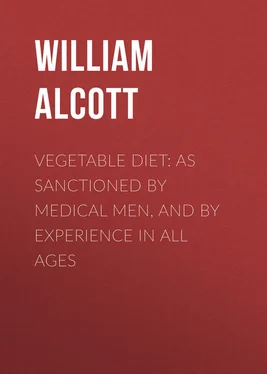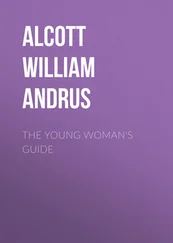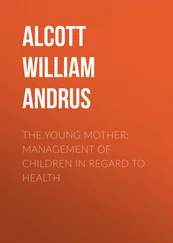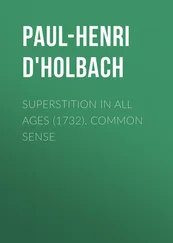William Alcott - Vegetable Diet - As Sanctioned by Medical Men, and by Experience in All Ages
Здесь есть возможность читать онлайн «William Alcott - Vegetable Diet - As Sanctioned by Medical Men, and by Experience in All Ages» — ознакомительный отрывок электронной книги совершенно бесплатно, а после прочтения отрывка купить полную версию. В некоторых случаях можно слушать аудио, скачать через торрент в формате fb2 и присутствует краткое содержание. Жанр: foreign_antique, foreign_prose, на английском языке. Описание произведения, (предисловие) а так же отзывы посетителей доступны на портале библиотеки ЛибКат.
- Название:Vegetable Diet: As Sanctioned by Medical Men, and by Experience in All Ages
- Автор:
- Жанр:
- Год:неизвестен
- ISBN:нет данных
- Рейтинг книги:5 / 5. Голосов: 1
-
Избранное:Добавить в избранное
- Отзывы:
-
Ваша оценка:
- 100
- 1
- 2
- 3
- 4
- 5
Vegetable Diet: As Sanctioned by Medical Men, and by Experience in All Ages: краткое содержание, описание и аннотация
Предлагаем к чтению аннотацию, описание, краткое содержание или предисловие (зависит от того, что написал сам автор книги «Vegetable Diet: As Sanctioned by Medical Men, and by Experience in All Ages»). Если вы не нашли необходимую информацию о книге — напишите в комментариях, мы постараемся отыскать её.
Vegetable Diet: As Sanctioned by Medical Men, and by Experience in All Ages — читать онлайн ознакомительный отрывок
Ниже представлен текст книги, разбитый по страницам. Система сохранения места последней прочитанной страницы, позволяет с удобством читать онлайн бесплатно книгу «Vegetable Diet: As Sanctioned by Medical Men, and by Experience in All Ages», без необходимости каждый раз заново искать на чём Вы остановились. Поставьте закладку, и сможете в любой момент перейти на страницу, на которой закончили чтение.
Интервал:
Закладка:
I will answer your questions, numerically, from my knowledge of a case somewhat in point, and with which I am but too familiar, as it is my own. But, first, let me premise a few points in the history of my health, as a kind of key to my answers.
It is about fifteen years since I was called a dyspeptic ; this was while engaged in my academical studies. Not being instructed by my medical friend to make any alteration in diet and regimen, I merely swallowed his cathartics for one month, and his anodynes for the next month, as the bowels were constipated or relaxed. In short, I left college more dead than alive – a confirmed dyspeptic.
In 1826, I commenced the practice of physic. From this time, to the winter of 1831-2, I found it necessary gradually to diminish my indulgence in the luxuries of the table – especially in animal food, and distilled and fermented liquors. On one of the most inclement nights of the winter of 1831-2, a fire broke out in our village, at which I became very wet by perspiration, and the ill-directed efforts of some to extinguish it. This was followed by a severe inflammatory attack upon the digestive organs generally, and especially upon the renal region, which confined me to the house for more than eight months; and, for the greatest share of that time, with the most excruciating torture. On getting out again, I found myself in a wretched condition indeed – reduced to a skeleton – a voracious appetite, which could not be indulged, and which had scarcely deserted me through the whole eight months. I could not regain my flesh or strength but by almost imperceptible degrees; indeed, loaf-sugar and crackers were almost the only food I could use with impunity for the first year.
It is now nearly four years since I have eaten animal food, unless it be here and there a little, as an experiment, with the sole exception of oysters, in which I can indulge, but with all due deference to the stricter rules of temperance. Still my appetite for animal food seems unabated. I have ever been a man unusually temperate in the use of intoxicating drinks; and by no means intemperate in the luxuries of the table. I take no meat, no alcoholic or fermented drinks, not even cider; and, for a year past, my health has been better than for three years previous; and I think that about one third the amount of nourishment usually taken by men of my age, might subserve the purposes of food for me better than a larger quantity. The more I eat, the more I desire to eat; and abstinence is my best medicine.
But I have already surpassed my limits, and here are my answers.
1. My strength is invariably diminished by animal food, and in almost direct proportion to the quantity, with the exception named above.
2. Pain has been the uniform attendant upon the digestion of an animal diet, with feverish restlessness and constipation.
3. Decidedly more fit for energetic action.
4. An irritation, or subacute inflammation of the digestive apparatus, which is aggravated by animal food.
5. Can endure hardship, exposure, and fatigue, much better without meat.
6. About four years, with the exception stated above.
7. It was not.
8. Partially at the commencement; but not of late, if not taken hot.
9. Much more aperient.
10. Both classes take too much; and students and sedentaries should take little or none.
11. For myself farinaceous articles first, then the succulent sub-acid ripe fruits, then the less oily nuts are most healthful – and animal food, strong coffee and tea, and unripe or hard fruits, in any considerable quantities, are most pernicious.
Yours, etc., W. H. Webster.LETTER XIV. – FROM JOSIAH BENNET, ESQ
Sir, – I hereby transmit to you, answers to a series of dietetic queries which you have recently submitted.
1. My physical strength was at least equal (I am rather inclined to think greater) after abstaining from animal food. I was, I am certain, not subject to such general debility and lassitude of the system, after considerable bodily exercise.
2. More agreeable – not being subject to a sense of vertigo, which frequently (with me) followed the use of animal food. There is, generally, more cheerfulness and vivacity.
3. The mind is more clear, and is not so liable to be confused when intent upon any intricate subject; and, of course, "can continue a laborious investigation longer." There is at no time such a propensity to incogitancy.
4. I am not aware of being the subject of any "constitutional infirmities;" yet, that the change of diet had a very great effect upon the system, is obvious, from the fact of my having been, formerly, subject to an eruptive disease of the skin, principally on the shoulders and upper part of the back, for a number of years, which is not the case at present, nor do I think will be, as long as I continue my present mode of living.
5. I think I have not had as many colds and febrile attacks as before, nor have they been so severe; yet I cannot be very decisive on this point, on account of the length of time in the trial not being fully sufficient.
6. Between seven and eight months. I must here state that animal food was not entirely excluded. I probably partook, in very moderate quantities, once or twice a week.
7. The quantity of animal food which would be considered "an uncommon proportion," I am unable to determine; but I was accustomed to make use of it, not less than twice, and sometimes three times a day, moderately seasoned. No other stimulants, of any account.
8. Cold water has been the only substitute for tea and coffee, with the exception of an occasional cup; probably as often as once or twice a week. I was, on several occasions, by personal experience, induced to believe that the use of strong coffee retarded the process of digestion.
9. More aperient. Previous to the general exclusion of animal food from my diet, I was subject to inveterate costiveness; cases of which are now neither frequent nor severe.
10. I do firmly believe it would.
11. My diet, principally, during the trial, consisted of wheat bread, of the proper age, with a moderate quantity of fresh butter. Potatoes, beans, and some other esculent roots, etc., I found to be nutritious and healthy. The following substances I found to produce a contrary effect, or to possess different qualities: cabbage, when not well boiled; cucumbers, raw or pickled; radishes, beets, and the whole catalogue of preserves. Fresh bread was particularly hurtful to me.
Yours, etc., Josiah Bennett.LETTER XV. – FROM WILLIAM VINCENT, ESQ. 2 2 Mr. Vincent is of Stonington, Ct.
Sir, – The following answer to the interrogations in the Boston Medical and Surgical Journal of March 1835, on diet, etc., as proposed by yourself, has been through the press of business, neglected until this late period. Trusting they may be of some use, I now forward them.
1. Rather increased, if any change.
2. —
3. I think I have retained the vigor of my mind more, in consequence of an abstemious diet.
4. I thought I had the appearance of scurvy, which gradually disappeared.
5. —
6. From May 20, 1811, (more than twenty-four years.)
7. Small in quantity, and dressed and cooked simply.
8. I have drank nothing but warm tea, for seven years.
9. Bowels uniformly open.
10. I should not think it would.
11. I have lived principally on bread, butter, and cheese, and a few dried vegetables.
I was born March 31, 1764. In 1833, when mowing, to quench thirst, I drank about a gill of cold water, after about as much milk and water; and the same year, some molasses and water; but they did not answer the purpose. But when I rinsed my mouth with cold water, it allayed my thirst.
Читать дальшеИнтервал:
Закладка:
Похожие книги на «Vegetable Diet: As Sanctioned by Medical Men, and by Experience in All Ages»
Представляем Вашему вниманию похожие книги на «Vegetable Diet: As Sanctioned by Medical Men, and by Experience in All Ages» списком для выбора. Мы отобрали схожую по названию и смыслу литературу в надежде предоставить читателям больше вариантов отыскать новые, интересные, ещё непрочитанные произведения.
Обсуждение, отзывы о книге «Vegetable Diet: As Sanctioned by Medical Men, and by Experience in All Ages» и просто собственные мнения читателей. Оставьте ваши комментарии, напишите, что Вы думаете о произведении, его смысле или главных героях. Укажите что конкретно понравилось, а что нет, и почему Вы так считаете.












